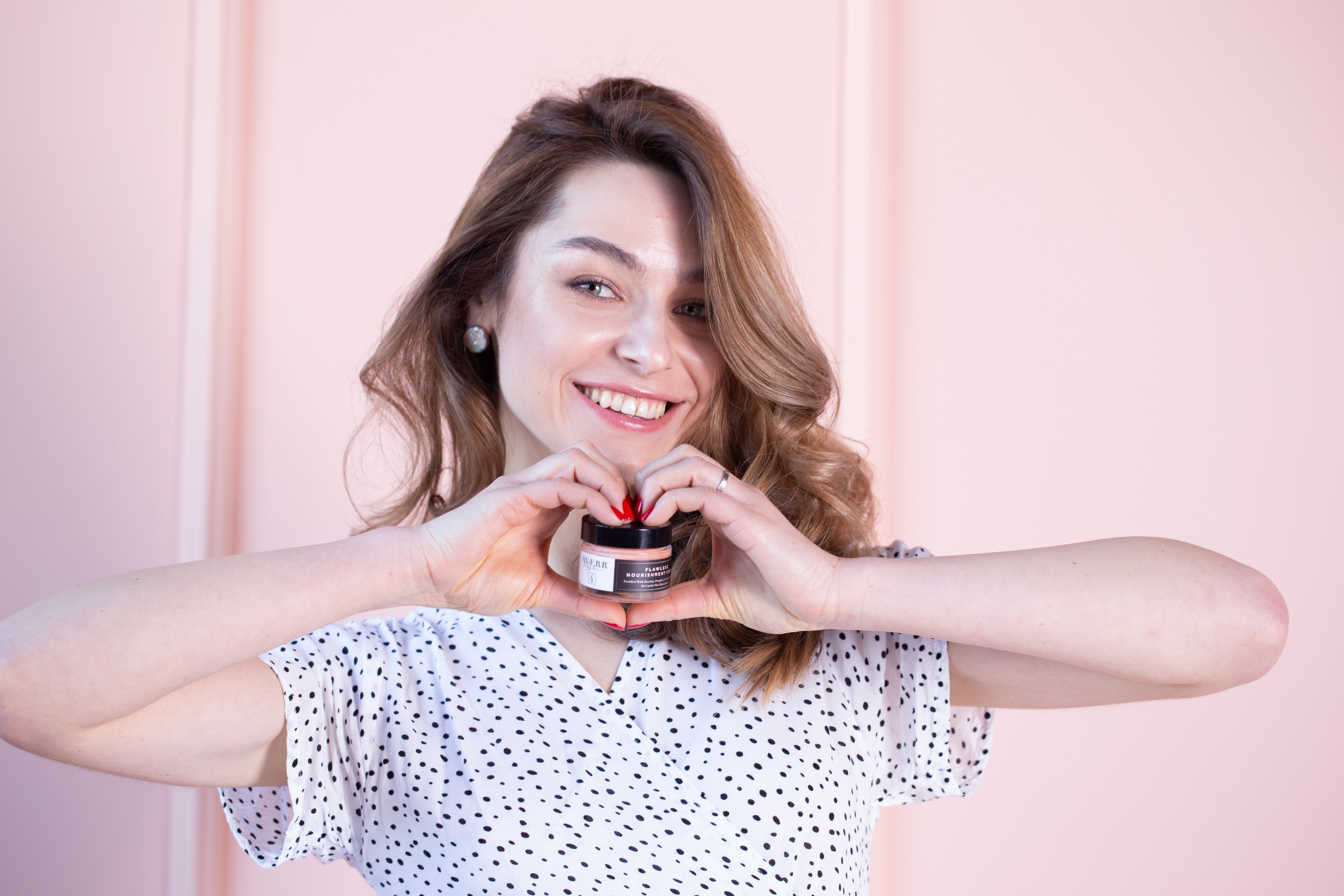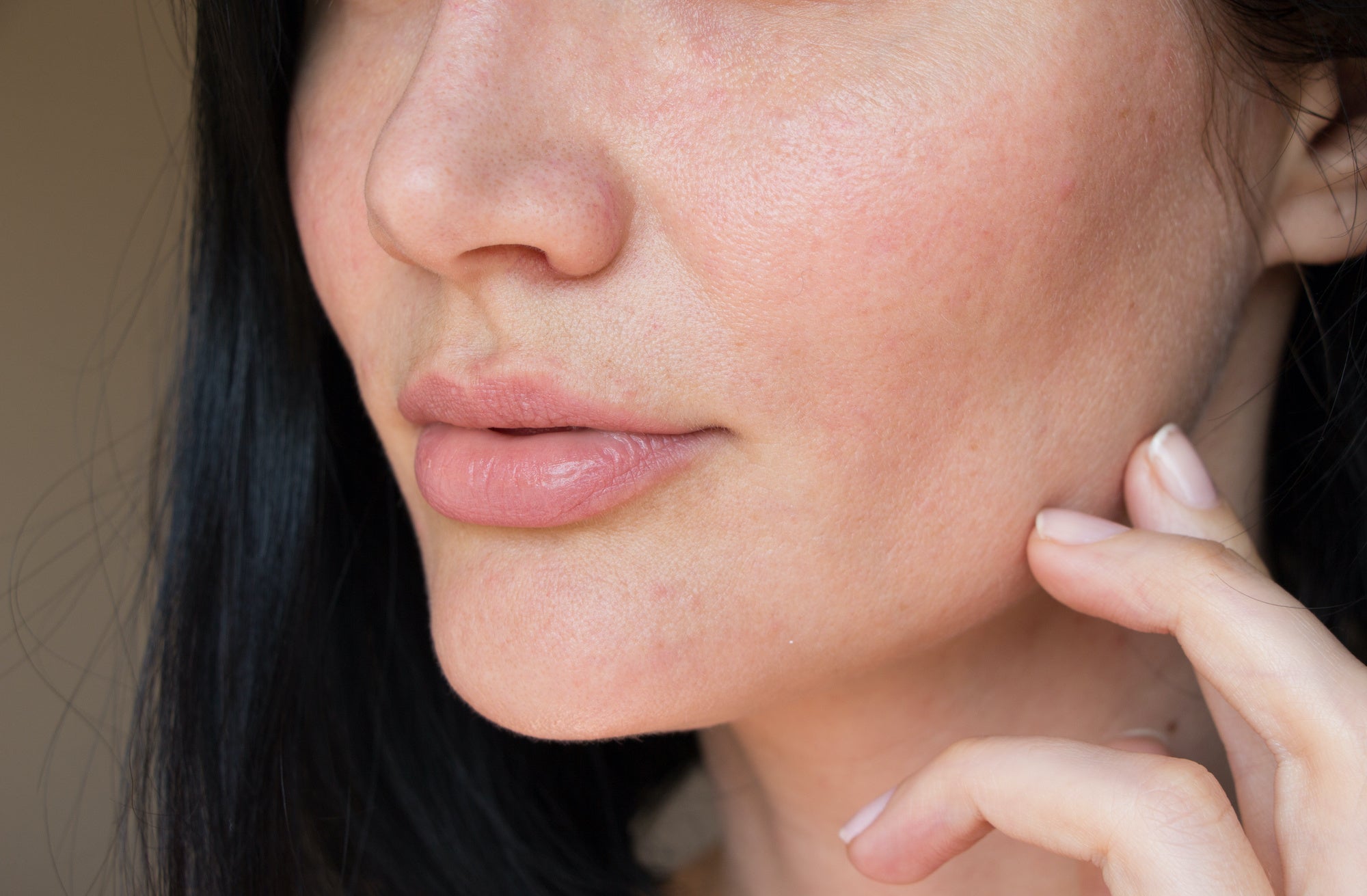
Every Question You’ve Ever Had About Jojoba Oil, Answered
Jojoba oil is trending in the world of skincare, and it’s easy to see why. If you’ve had skin struggles in the past and searched for ways to correct them, you’ve probably heard of jojoba oil.
Haven’t heard of it? We’re about to blow your mind. This is a natural plant-derived oil that boasts the ability to soothe, heal, and nourish your skin all at once. We know that you want all the details on this glorious substance and what it can do for your problematic skin, but before we get into the nitty-gritty, let’s cover the basics.
How Do You Pronounce Jojoba?
Nothing is quite as embarrassing as telling your bestie about this oil and inadvertently pronouncing it with hard Js. Don’t worry, we’ll save you from any future embarrassment: these j’s sound like h’s, as in ho-ho-ba. You’re welcome.

What is Jojoba Oil?
Despite its name, jojoba oil isn’t an oil. It’s made up of wax esters, which means it looks and feels like an oil, but it’s a liquid wax. The primary difference between an oil and a liquid wax is the wax’s ability to absorb into the skin. It comes from the seeds of the jojoba shrub and is full of all kinds of goodies for your skin, like vitamins and antioxidants that help reduce inflammation and enhance wound healing. Bye-bye acne scars!
Jojoba oil’s waxy quality gives it the ability to resemble the natural oils of your skin, or sebum. Whereas other oils or products sit on top of your skin, jojoba oil can penetrate below the top layer of skin for a first-rate hydration experience.
Who Should Use Jojoba Oil?
Here’s where things get exciting as if you weren’t already captivated. With its whole host of benefits and ability to assist a wide variety of skin concerns, jojoba oil is appropriate for all skin types. Whether you suffer from acne, dry skin, oily skin, sensitive skin, or more serious skin conditions, like psoriasis or eczema, jojoba oil should be your new skincare go-to.
How is Jojoba Oil Good For Your Skin?

We’ve already established that this remarkable, plant-derived product can work wonders on any face, but let’s talk details. What specifically can it do for your skin concerns?
1. Provides a Deep, Lasting Hydration
Due to its waxy nature, jojoba oil is lighter than other face oils meaning your skin can absorb it with ease. Unlike water-based moisturizers, it doesn’t evaporate, so you get to reap the hydrating benefits all day long. Studies show that as a humectant ingredient, jojoba oil provides a protective barrier to your skin that keeps it from losing moisture. Score!
2. Balances Oil Production in Your Skin
Wait, if you already have oily skin, why would you add more oil to it? Remember, jojoba oil is a liquid wax that resembles the natural oils in your skin. With regular application, it trains your skin to only produce the amount of oil necessary, not too much or too little. That means you can trash those blotting papers for good. The best part is, jojoba oil doesn’t leave your face feeling slick or greasy.

3. Feeds Your Skin
Do you know all those buzzwords you look for when researching your skincare? Jojoba oil has them all. It’s hypoallergenic, antimicrobial, and analgesic. In other words, it won’t cause an allergic reaction, doesn’t clog pores, kills bad bacteria, and can relieve pain. Jojoba oil provides your skin with antioxidants and essential vitamins, like A, E, and D, that can help reduce inflammation and complement wound healing. How’s that for multi-tasking?
4. Helps Prevent Acne
When you have problem skin, it’s common to be so focused on correcting an existing issue that you forget to try and prevent it in the first place. Jojoba oil does both. It assists in the production of the acid mantle, a film that your skin creates to act as a barrier to contaminants by balancing your pH levels. It helps remove excess oil and dirt that clogs your pores while providing nutrients and hydration.
5. Soothes Angry Skin
We’ve all felt the uncomfortable sting of irritated skin. Whether it’s a simple sunburn or recurring eczema, sometimes your skin just hurts. Jojoba oil can help with that. As a natural analgesic, it can soothe the pain of a sunburn or the itch of eczema. It also provides your skin with vitamin E that heals as it protects. Plus, it supplies the one thing that all irritated skin needs: hydration.

Where Do You Buy Jojoba Oil?
Now that we’ve sufficiently convinced you that you need jojoba oil in your skincare routine, the question remains, where do you get it?
If you want to buy pure jojoba oil, make sure that it is cold-pressed and 100% organic and pure, which means it hasn’t been cut with other oils. But as amazing as it is, jojoba oil shouldn’t be looked at as the sole factor in clearing up your skin.

Look for it as an ingredient in your skincare products. It may be listed by its botanical name, Simmondsia Chinensis. Lucky for you, we use jojoba oil in our Radiant Cleansing Nectar. Like jojoba oil, our cleanser is suitable for all skin types, yes, even yours.
It’s the right amount of tough and gentle to remove dirt and oil while leaving behind healing nutrition for your skin. Take the next step towards clear skin with our Radiant Cleansing Nectar and reap all the benefits of jojoba oil in one easy step.





